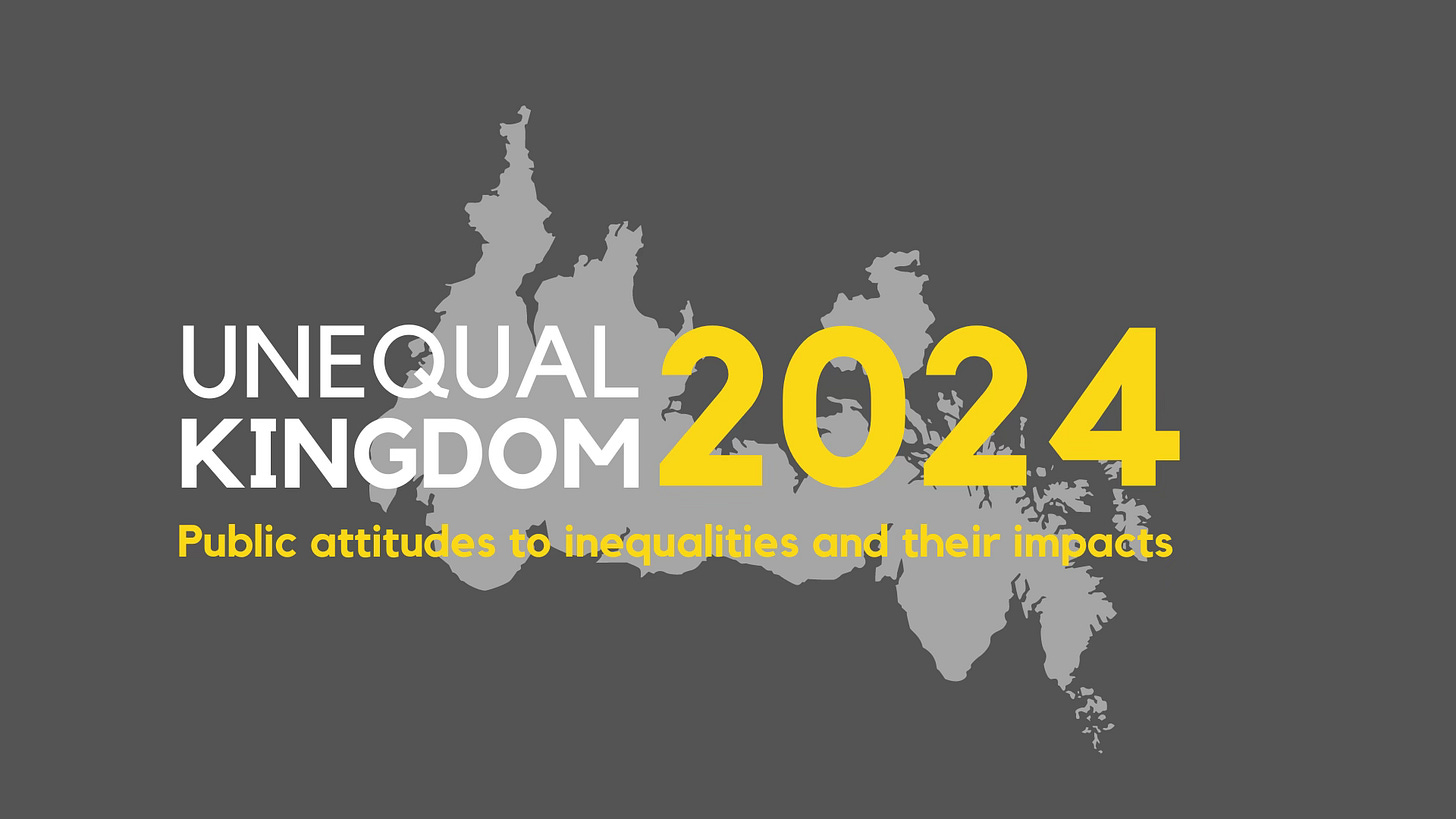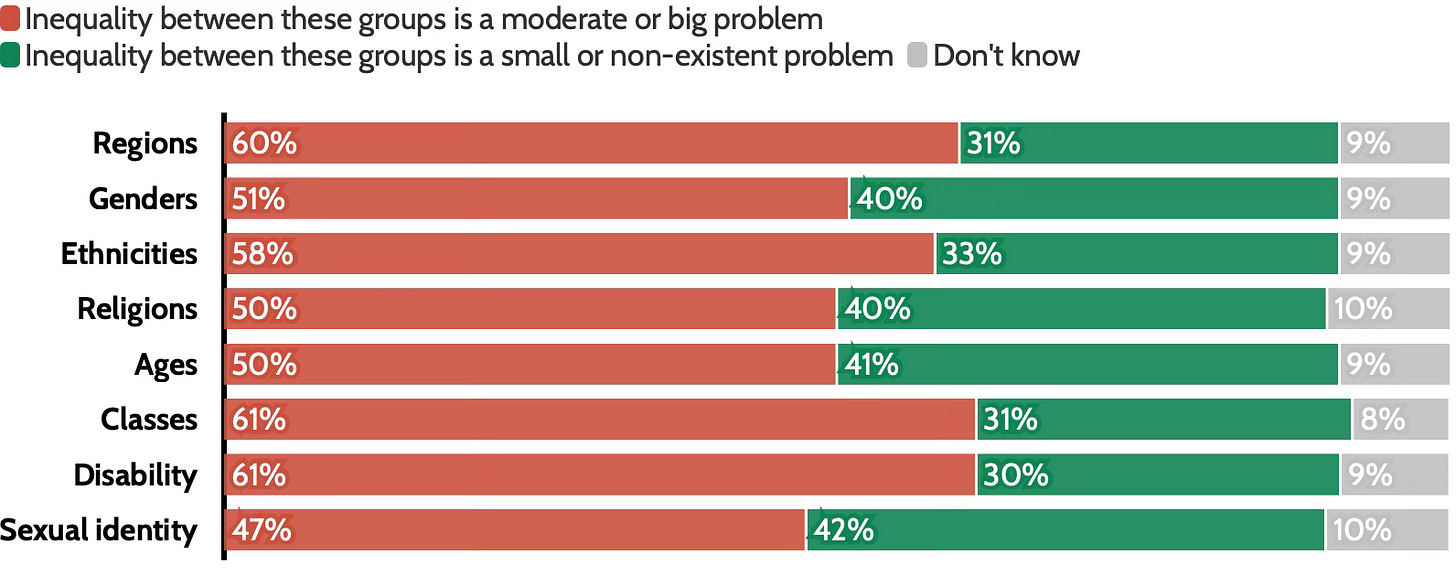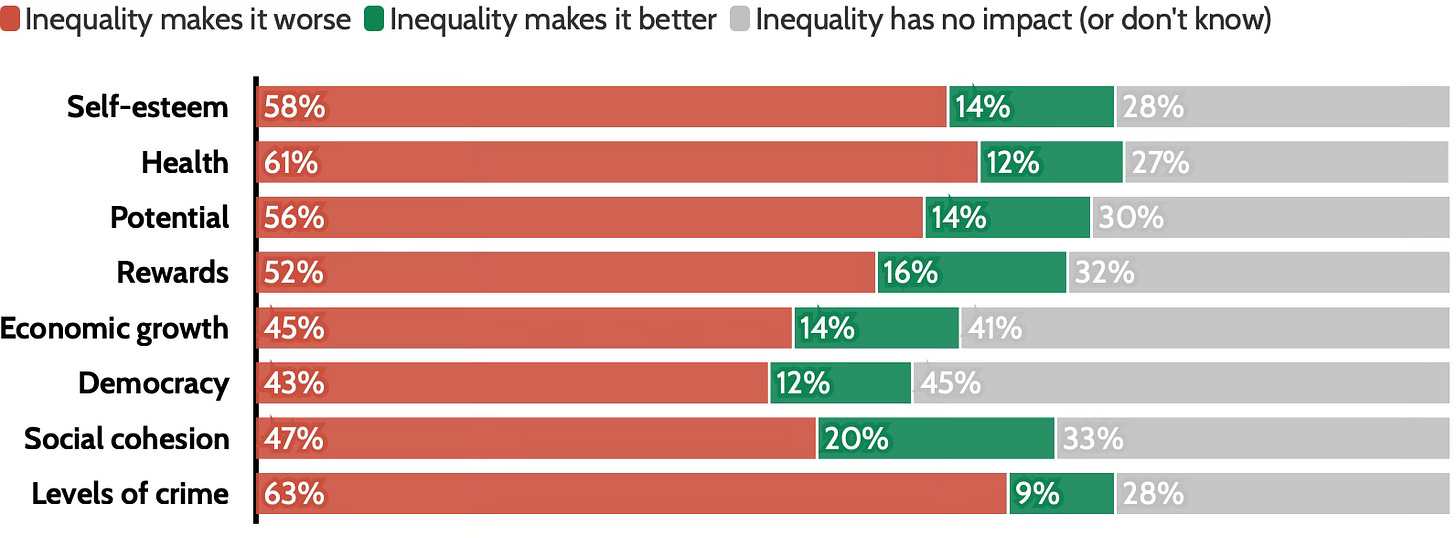Unequal Kingdom
Our new polling on public attitudes to inequalities and their impacts shows that concern extends beyond regional inequalities but awareness of impacts is limited
Our new report, Unequal Kingdom, is based on polling that we carried out with Opinium in early January into UK public attitudes to inequalities and their impacts.
You can also read a summary in a twitter / X thread (please do share if you can - thank you), and there is a two-page PDF summary of the report.
The survey aimed to explore what forms of inequality people in Britain are most worried about, and what impacts they think inequality has on the economy, on democracy, on people’s health and self-esteem, on social cohesion and crime, and on fair opportunities and rewards.
The headline is that people’s concern about inequality extends beyond regional and economic inequalities to include class and racial inequalities, but that public awareness of the impact of inequalities on society is relatively superficial.
Key findings
Three in four people are worried about wealth and income inequalities, closely followed by health and educational inequalities. Smaller majorities also worry about social and political inequalities:
Looking at inequalities between groups, people are most concerned about class, disability and ethnicity, as well as region, with less concern about gender, age, religion and sexual identity:
Most think inequality has a negative impact on crime, health, self-esteem, and fair opportunities and rewards, but fewer are aware of the impacts on our economy, society and democracy:
Our findings are broadly in line with the results from other recent attitudinal research in the UK, which consistently shows that people are concerned about economic and regional inequalities. However, our research suggests that many people are increasingly worried about inequalities of class, disability and ethnicity as well. Other ‘vertical’ inequalities - of health, education, political influence, and status and respect - are also increasingly salient.
While there are unsurprising political differences in attitudes and awareness, there is a broad consensus of concern, including across generational divides, although women and those on higher incomes are more worried than men and those on lower incomes.
And while there are high levels of concern about a range of inequalities, fewer people are aware of the impacts of inequality on ‘public goods’ such as social cohesion, democracy and economic growth, suggesting that inequality campaigners may need to do more to highlight the negative impacts of inequality on key public and political priorities, but should be aware of the challenges in making these less intuitive connections in people’s minds.
The online report has the full picture, with detailed polling figures, data visualisations, demographic breakdowns, discussion and links to existing research on public attitudes.
The report was covered in the podcast Oh God, What Now? and was supported on social media by IPPR, Bright Blue, Liam Byrne MP and the TUC, among others.






